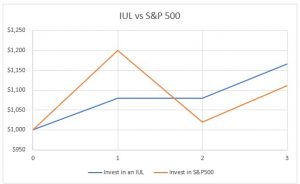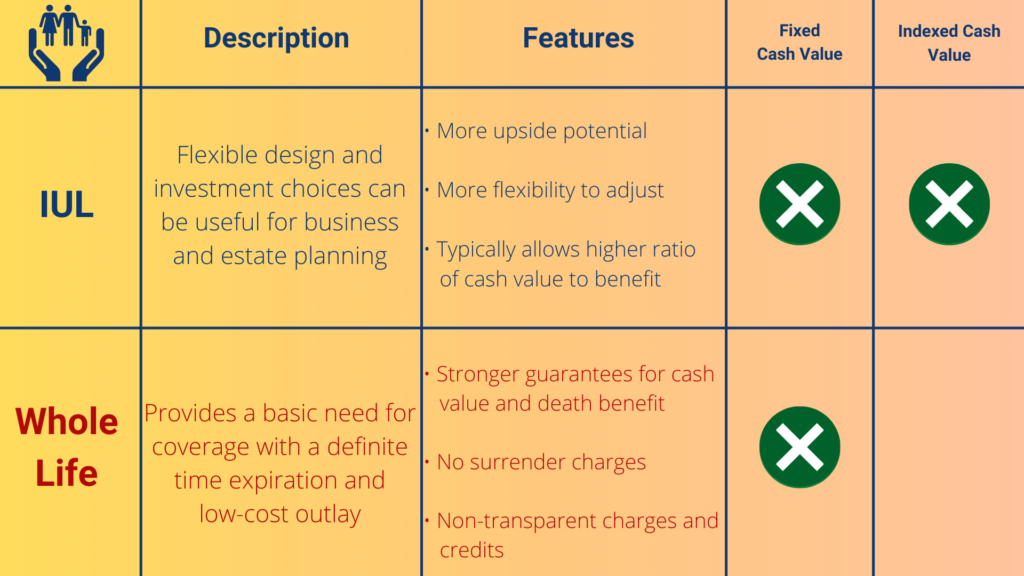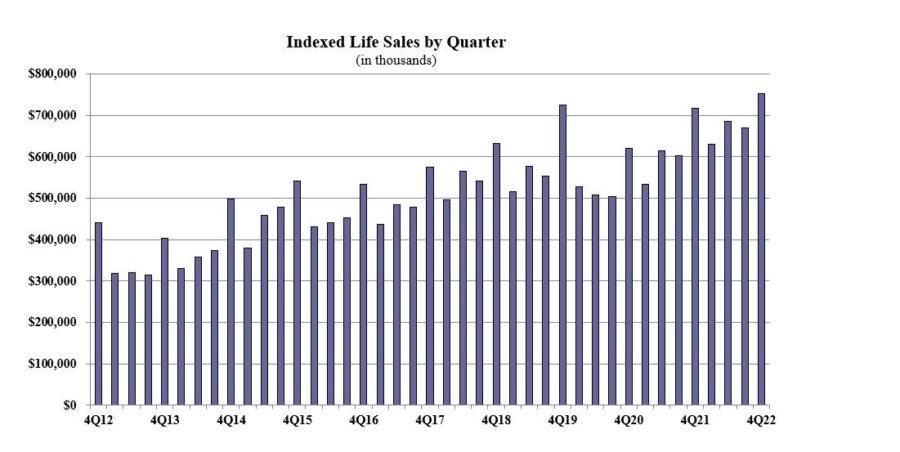All Categories
Featured
Table of Contents
For gaining a minimal amount of the index's development, the IUL will certainly never get less than 0 percent interest. Even if the S&P 500 decreases 20 percent from one year to the next, your IUL will certainly not shed any type of money value as a result of the market's losses.

Visualize the interest intensifying on a product with that kind of power. Offered all of this info, isn't it possible that indexed global life is a product that would enable Americans to get term and spend the remainder?
A true investment is a securities item that goes through market losses. You are never based on market losses with IUL merely due to the fact that you are never subject to market gains either. With IUL, you are not spent in the market, but just making passion based upon the efficiency of the market.
Returns can grow as long as you continue to make payments or maintain a balance. Contrast life insurance online in minutes with Everyday Life Insurance Policy. There are 2 sorts of life insurance policy: permanent life and term life. Term life insurance coverage just lasts for a certain timeframe, while permanent life insurance policy never ever ends and has a money worth element in addition to the death benefit.
What Is Indexed Universal Life Insurance
Unlike global life insurance policy, indexed global life insurance policy's cash money worth gains rate of interest based on the performance of indexed supply markets and bonds, such as S&P and Nasdaq., points out an indexed global life policy is like an indexed annuity that really feels like universal life.

Universal life insurance coverage was developed in the 1980s when interest prices were high. Like other types of irreversible life insurance policy, this policy has a cash worth.
Indexed global life plans use a minimal surefire rate of interest price, additionally recognized as an interest crediting flooring, which lessens market losses. Claim your cash worth loses 8%.
Best Iul Companies 2021
It's additionally best for those going to assume added threat for higher returns. A IUL is a long-term life insurance coverage plan that borrows from the homes of a global life insurance plan. Like global life, it allows flexibility in your fatality benefit and premium repayments. Unlike global life, your money worth expands based upon the performance of market indexes such as the S&P 500 or Nasdaq.
Her work has been published in AARP, CNN Highlighted, Forbes, Lot Of Money, PolicyGenius, and United State Information & Globe Report. ExperienceAlani has actually reviewed life insurance policy and animal insurance provider and has actually created many explainers on travel insurance, credit scores, financial obligation, and home insurance policy. She is enthusiastic concerning debunking the intricacies of insurance coverage and other individual financing topics to make sure that readers have the information they require to make the best cash choices.

Paying just the Age 90 No-Lapse Premiums will certainly guarantee the death benefit to the insured's achieved age 90 yet will certainly not guarantee money worth build-up. If your customer terminates paying the no-lapse guarantee costs, the no-lapse function will certainly end prior to the assured duration. If this takes place, added costs in an amount equal to the deficiency can be paid to bring the no-lapse function back active.
I recently had a life insurance salesman turn up in the comments thread of a message I released years ago concerning not blending insurance policy and investing. He assumed Indexed Universal Life Insurance Coverage (IUL) was the best thing given that sliced bread. On behalf of his position, he uploaded a web link to a write-up written in 2012 by Insurance Coverage Representative Allen Koreis in 2012, entitled "16 Reasons that Accountants Prefer Indexed Universal Life Insurance Policy" [web link no more readily available]
Universal Life Company
First a short explanation of Indexed Universal Life Insurance Coverage. The attraction of IUL is noticeable. The premise is that you (almost) obtain the returns of the equity market, without any kind of risk of shedding money. Now, prior to you drop off your chair making fun of the absurdity of that declaration, you require to recognize they make a really persuading debate, at the very least until you look at the details and understand you don't get anywhere near the returns of the equity market, and you're paying far as well much for the warranties you're getting.

If the market drops, you get the guaranteed return, generally something in between 0 and 3%. Naturally, given that it's an insurance coverage plan, there are also the common prices of insurance coverage, compensations, and surrender fees to pay. The information, and the factors that returns are so terrible when blending insurance and investing in this specific method, come down to basically three things: They only pay you for the return of the index, and not the rewards.
Ul Mutual Insurance
If you cap is 10%, and the return of the S&P 500 index fund is 30% (like last year), you get 10%, not 30%. If the Index Fund goes up 12%, and 2% of that is returns, the modification in the index is 10%.
Add all these effects together, and you'll discover that long-term returns on index global life are pretty darn near to those for whole life insurance policy, favorable, but reduced. Yes, these policies ensure that the cash money value (not the cash that mosts likely to the costs of insurance policy, certainly) will not lose cash, but there is no warranty it will certainly stay on par with inflation, a lot less expand at the rate you need it to grow at in order to attend to your retired life.
Koreis's 16 factors: An indexed global life policy account worth can never shed money because of a down market. Indexed universal life insurance policy guarantees your account value, securing gains from each year, called an annual reset. That's real, but only in nominal returns. Ask on your own what you need to pay in order to have a warranty of no small losses.
In investing, you obtain paid to take threat. If you do not intend to take much danger, do not anticipate high returns. IUL account worths grow tax-deferred like a certified strategy (IRA and 401(k)); shared funds do not unless they are held within a qualified plan. Put simply, this suggests that your account value advantages from three-way compounding: You gain passion on your principal, you gain rate of interest on your rate of interest and you gain passion on the money you would certainly otherwise have paid in tax obligations on the rate of interest.
Insurance Indexation
Although certified plans are a much better choice than non-qualified plans, they still have problems not provide with an IUL. Investment options are normally limited to shared funds where your account worth undergoes wild volatility from direct exposure to market risk. There is a big distinction in between a tax-deferred pension and an IUL, yet Mr.
You purchase one with pre-tax bucks, saving on this year's tax expense at your low tax obligation rate (and will certainly commonly have the ability to withdraw your cash at a reduced reliable price later on) while you purchase the various other with after-tax bucks and will be forced to pay interest to obtain your own cash if you do not wish to surrender the plan.
Then he tosses in the classic IUL salesperson scare tactic of "wild volatility." If you dislike volatility, there are far better methods to reduce it than by buying an IUL, like diversification, bonds or low-beta stocks. There are no restrictions on the amount that may be added each year to an IUL.

That's comforting. Allow's consider this momentarily. Why would certainly the federal government put limits on just how much you can take into pension? Maybe, just perhaps, it's due to the fact that they're such an excellent offer that the federal government doesn't want you to save also much on taxes. Nah, that couldn't be it.
Latest Posts
Universal Life Insurance Cons
No Lapse Universal Life
Group Universal Life Cash Accumulation Fund